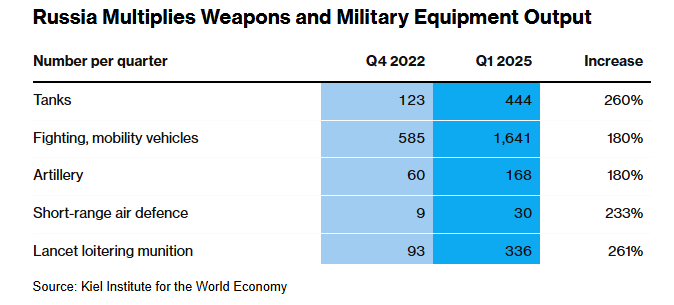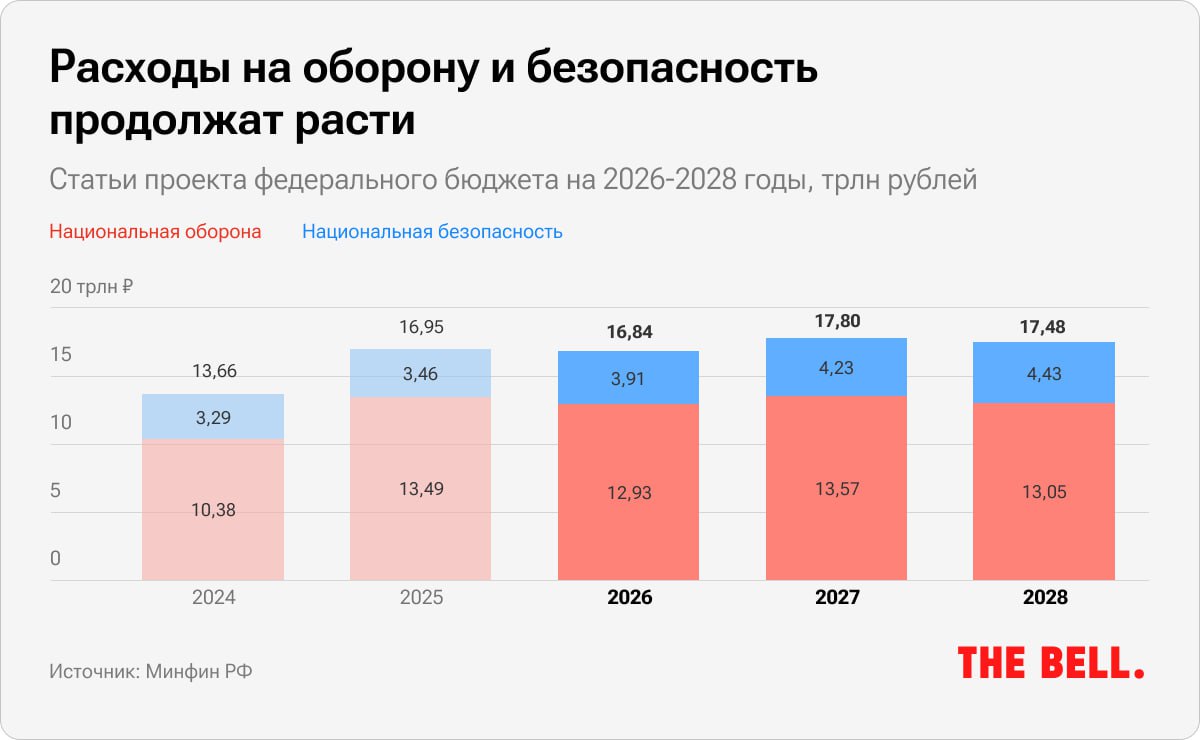Bloomberg: Russia's economy won't be able to get off the war track after the war in Ukraine ends

Russia is unlikely to stop militarizing its economy even if the war in Ukraine ends. Years of "defense" overspending have reshaped production and sucked up hundreds of thousands of workers. This has helped stave off an economic downturn, but a slowdown threatens to plunge into a crisis, writes Bloomberg.
Russia managed to increase production of major types of weapons several times, and some, such as drones, by an order of magnitude: from 140,000 in 2023 to 1.5 million in 2024.

However, military spending from 2022 to 2024 will reach 22 trillion rubles ($263 billion). No less than is budgeted for the next three years - this burden will be added to the sanctions.
Moscow could turn what is now a burden on the budget into a reliable source of income, the agency notes. For example, it could sell surplus weapons to allies, perhaps even China, as it did after World War II.
But the country's leadership is preparing for a confrontation with the West.
"This will be one of the factors that will contribute to maintaining a much higher level of production of the Russian defense industry than before 2022, which will allow preparing for possible future military conflicts," says geo-economic analyst Alex Kokcharov.
And Russian dictator Vladimir Putin said during a visit last week to the country's oldest defense plant that "the need for modern armed forces" will not end with the end of the war.
Russian military spending in 2026 will not increase for the first time since the war, and will even decline slightly. This follows from the explanatory note to the budget submitted to the Duma today, which was studied by The Bell.

Spending on the main military item "National Defense" will be cut by 4.2% (unless, of course, spending increases in the process). At the same time, spending on the neighboring article "National Security and Law Enforcement" will be cut by 13%.
Taken together, this will result in a minimal (0.6%) reduction in spending on the army and security forces in 2026. But starting in 2027, these costs will grow again.
- on August 14, Bloomberg wrote about Putin's dilemma: both war and truce pose risks to the economy.


Comments (0)